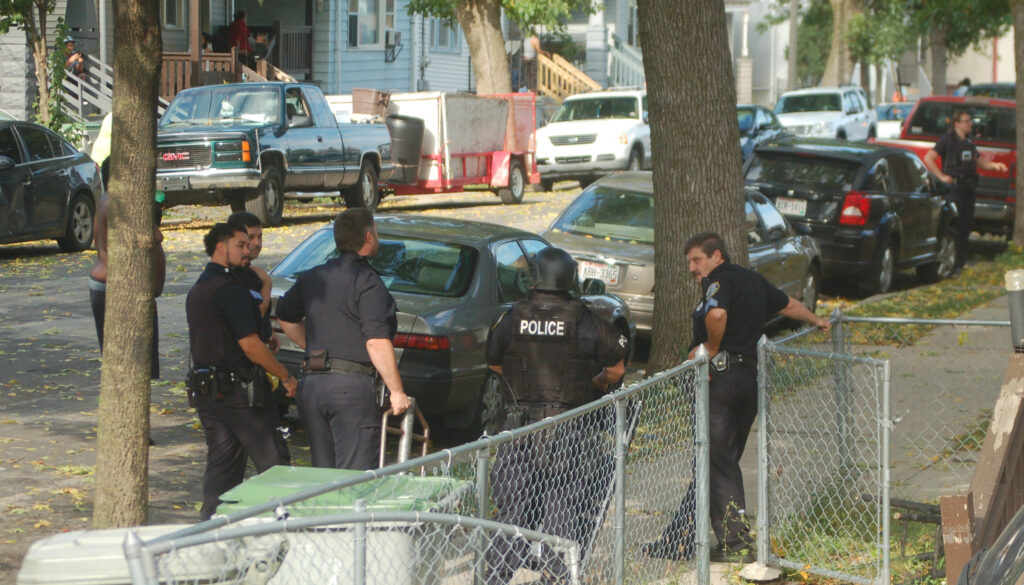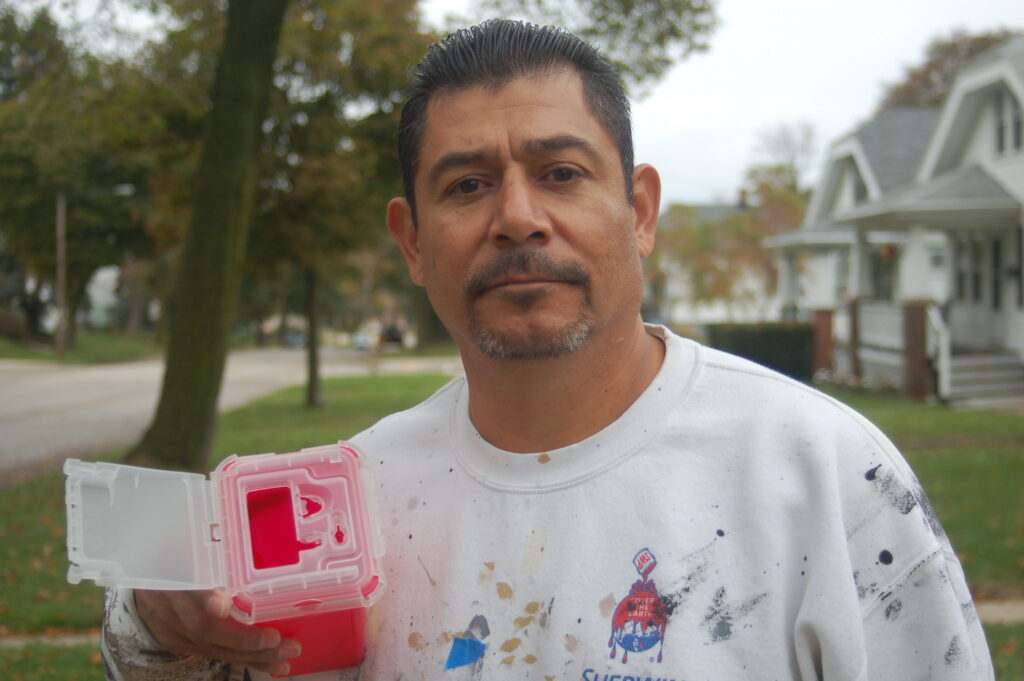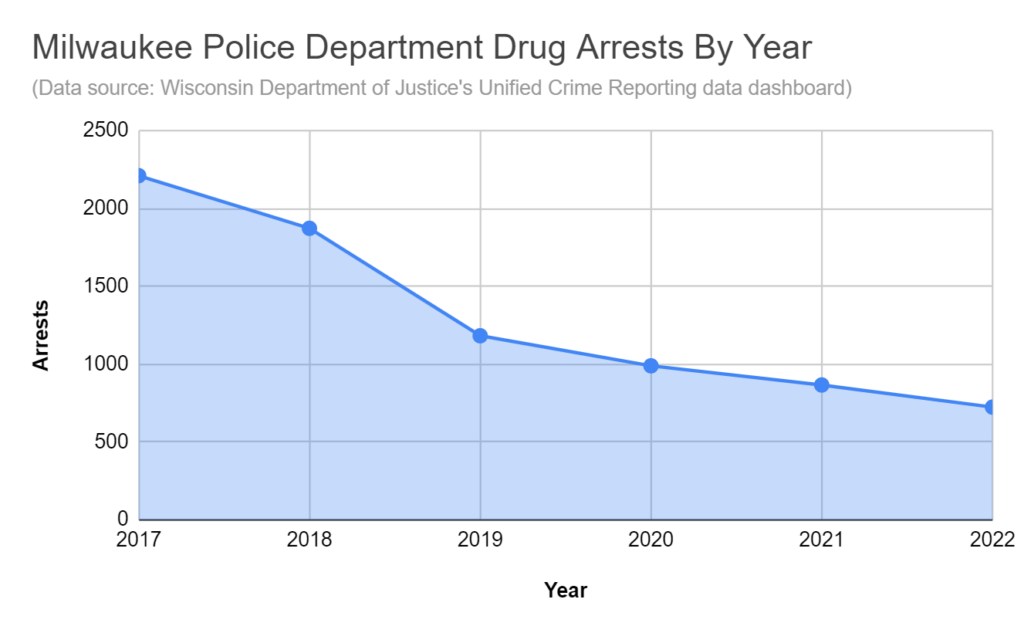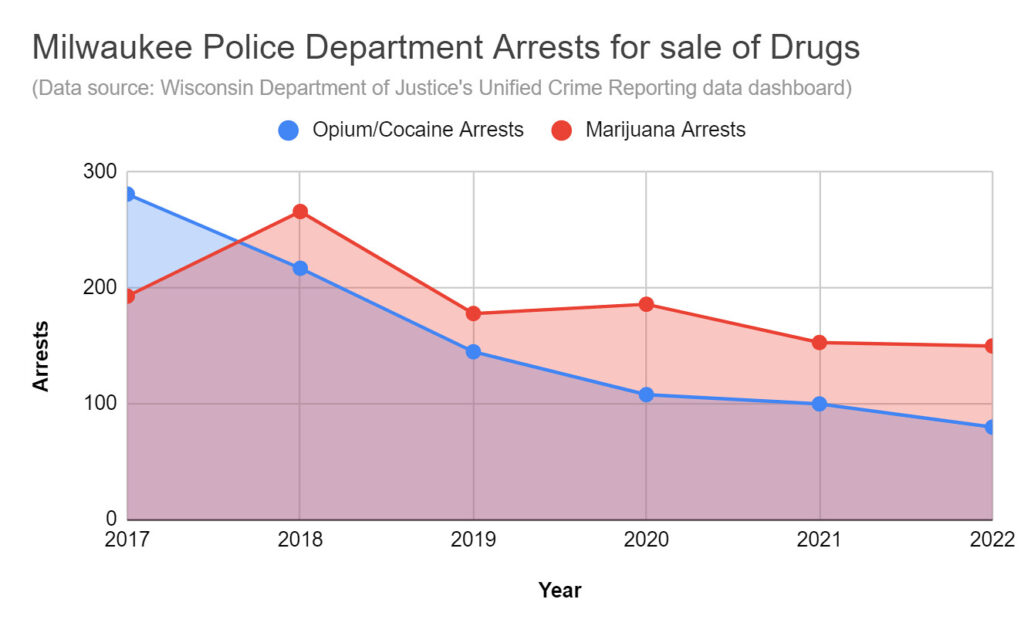City’s Drug-Related Arrests Drop By 67%
5-year decline even as overdose deaths soar. MPD cites change of focus.

The number of drug-related arrests by the Milwaukee Police Department has decreased each year since 2017. (NNS file photo).
Despite a record-breaking rise in drug overdose deaths in Milwaukee County over the past several years, the number of drug-related arrests in the city has declined.
Data from the Wisconsin Department of Justice’s Unified Crime Reporting data dashboard shows an annual decline in the number of drug-related arrests by the Milwaukee Police Department, or MPD, from 2017 to 2022.
In 2017, there were 2,210 arrests made for crimes including drug sale or drug possession, while in 2022, that total dropped to 724, a 67% decrease. In comparison, the much smaller West Allis Police Department made 384 drug related arrests last year, while Greenfield police made 185, in 2022.
Change of focus by MPD
MPD Capt. James Hutchinson said the main reason for the decrease is a shift in focus and the prioritization of limited resources by the department.
“We typically focus on violent crime reduction,” Hutchinson said, referencing the increase in shootings and murders the past several years. “We have dedicated units that focus on violent crime that really aren’t focused directly on drug arrests.”
He said a reduction in personnel has also had an effect on drug investigations.
“We don’t have as many boots on the ground as we used to, so we have to rely on our enhanced intelligence and intelligence units to try and focus on what’s the more impactful thing to do,” he said.
A no-win situation
Rafael Mercado, founder of Team HAVOC, said having less police available while the demand for drugs skyrockets has created a no-win situation for law enforcement and community groups.

Rafael Mercado, founder of Team HAVOC, says having less police available while the demand for drugs skyrockets has created a no-win situation for law enforcement and community groups. He is holding a container of needles collected during a cleanup on the South Side. (NNS file photo by Edgar Mendez).
“The increased use of fentanyl and other stronger products created by big pharma make it almost impossible for these community groups like mine to keep up,” he said. “We don’t have enough resources to help us at this point and the resources that are out there are going to the wrong approaches.”
Team HAVOC conducts needle cleanups and trains people to administer Narcan, a drug used to reverse the effects of opioid overdoses.
In 2022, there were 652 drug overdose deaths, with 25 cases still pending toxicology tests, in Milwaukee County.
MPD shifts away from targeting drug houses
Hutchinson said that MPD is using its resources to target the suppliers of large quantities of drugs, rather than the houses where drug users congregate.
This helped to create a culture of mistrust of the police, he added.
The number of arrests related to drug sales of opium and cocaine — two drugs implicated in thousands of deaths since 2017 — has decreased annually since 2017, from 281 that year to 80 in 2022.
Fentanyl, a synthetic opioid, was a factor in 1,526 deaths in the county from 2017 to 2021, while cocaine was involved in 1,026 deaths, according to a June 2022 presentation to members of City-County Heroin, Opioid and Cocaine Task Force by Sara Schreiber.
Schreiber is a member of the county overdose team and the forensic technical director of toxicology for the Medical Examiner’s Office.
Drug sale arrests
Meanwhile, arrests for marijuana sales have remained steadier. In 2017, there were 193 arrests for marijuana sales, while in 2022, there were 150.
Arrests for the sale of synthetics or other dangerous drugs were minimal last year (14 for synthetic and 34 for other dangerous drugs). Arrests by MPD from 2017 to 2022 for possession of opium or cocaine dropped from 481 to 109, while possession of marijuana arrests dropped from 1,009 to 266.
Statewide, the number of drug-related arrests, in general, is also down from 2017, although those numbers have fluctuated. For example, the total of 31,124 arrests in 2017 increased in 2018 to 31,495, before a dip to 27,670 in 2019 and 23,046 in 2020.
Numbers have steadied since then. In 2021, there were 23,958 drug-related arrests in the state with a slight increase last year to 24,422.
Residents believe drugs a top problem
Shanna Hickman, a Milwaukee resident who previously worked as an evidence technician for the Lac Du Flambeau Police Department, said MPD isn’t doing enough to address drugs, especially considering how much damage they’ve caused in the community.
“I think they don’t want to put in the work,” she said. “MPD picks and chooses which crimes to address, and drugs just always seem to be at the bottom of the barrel.”
Donta Holmes is the senior director of programming for Safe & Sound, an organization that works with residents, law enforcement, businesses and others to address safety concerns.
He said the top two concerns his organizers hear from residents are reckless driving and drug overdoses, two issues he believes are connected.
“In the past, it was drug houses, and now they’ve moved to mobile drug movement out of the cars,” he said. “A lot of the reckless driving ties into that.”
‘Drug dealers have gotten smarter’
Wendy Ramm of Milwaukee agrees.
“The drug dealers have gotten smarter with not having a drug house and instead using vehicles to deliver products, so the cops can’t really stop everyone in a vehicle,” Ramm said.
Holmes added that violent crime is also often tied to drugs. Still, he said, a reduction in the number of arrests does fall in line with a public health approach that his organization supports.
“We want people to get the mental health help they need,” he said. “People who have drug issues or addictions, many times it ties back to mental health.”
A public health lens
Hutchinson said the MPD works to address drug issues through a public health lens.
Ramm said the problem with that approach is that it pushes the problem around without offering a real solution.
“Overdoses are through the roof, and the amount of people we see every day strung out on the streets is bad,” she said. “People have to want help and we can’t force them.”
Even if they want help, said Mercado, those resources also are limited.
“To prevent drug usage at its current rate we need to open up more treatment centers that are available 24/7,” he said.
Impact of ACLU settlement
Although Hutchinson said the decline in arrests was not a result of policy or procedural changes, Stephen Jansen, co-chair of the Community Collaborative Commission, or CCC, believes there’s no doubt the ACLU settlement with the City of Milwaukee in 2018 has had an impact.
The $3.4 million settlement mandated sweeping reforms of stop-and-frisk practices, more training for police and improved reporting procedures, among other changes at MPD.
“As a result of that I think that’s why some of the stops have been reduced,” he said, adding that this has likely resulted in less targeted arrests.
He said that while some may believe fewer stops mean more crime, it’s a myth.
“Since we’ve seen a steady decline in stops that are taking place, you’ve also seen in some areas of policing that crime is being reduced, such as burglaries and other serious crimes,” he said. “When you use a broken window and stop-and-frisk approach you’re holistically targeting people.”
Jansen, whose group is working to negotiate a community plan with police and on a stop-and-frisk survey for residents, believes that drug use and drug related crimes are a major problem in the city. Still, he said, a holistic approach is needed to address it, rather than arrests.
“I think that when we’re talking about crime, especially drug-related crime, in many cases we’re talking about economics and mental health,” he said.
“We need economic viability. housing, mental health, getting rid of abandoned homes, and uniting with law enforcement to bridge relationships with residents, and the investment of the entire city to make things better.”
7 places where you can get help
- 10th Street Comprehensive Treatment Center
- Rogers Behavioral Health
- West Milwaukee Comprehensive Treatment Center
- First Step Community Recovery Center
- Meta House
- West Allis Community Medical Services
- United Community Center
As overdose deaths rise, drug-related arrests decline by 67% in Milwaukee was originally published by the Milwaukee Neighborhood News Service.
If you think stories like this are important, become a member of Urban Milwaukee and help support real, independent journalism. Plus you get some cool added benefits.
























Acceptance of the complete, abject failure of the war on drugs:?
But wait: “Boots on the ground”? Cops confusing themselves with military?
Most westernized countries use a Healthcare to approach drug use. The U.S. used a Criminal approach. The War on Drugs is an abysmal failure. That caused Mass Incarceration. The U.S. incarcerates more people than other countries. Wisconsin incarcerates the most in the Country. Black people constituted 7% of state residents, but 29% of people in jail and 41% of people in prison. The greatest number are due to Racial Profiling in Milwaukee.